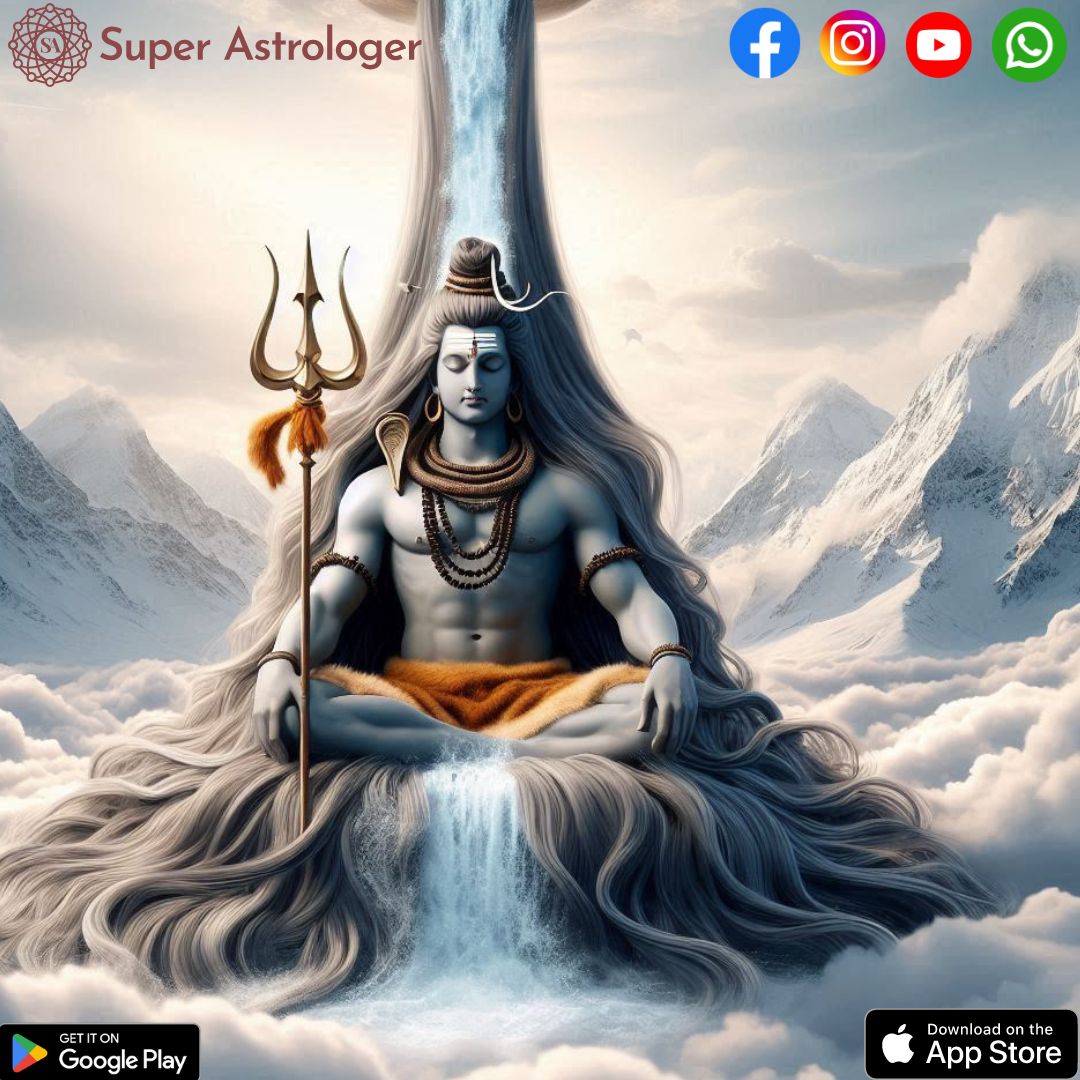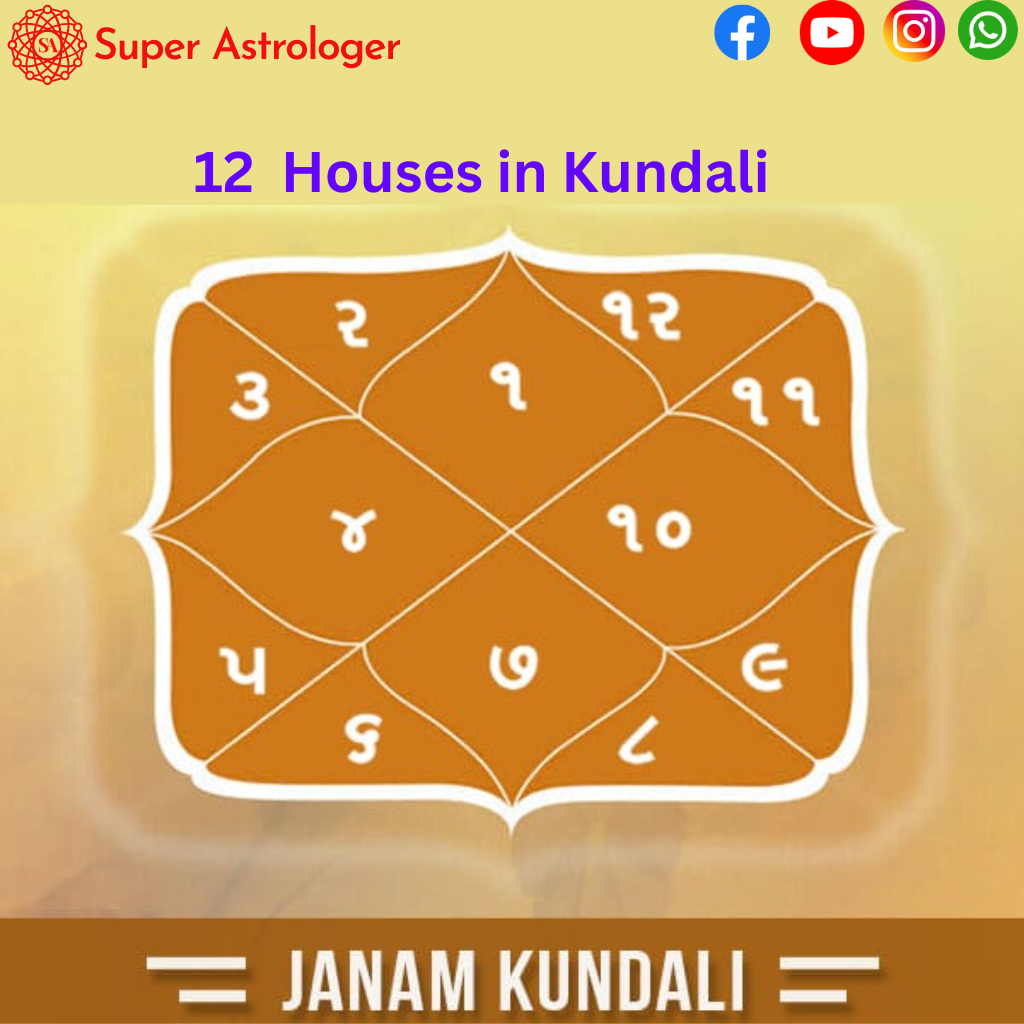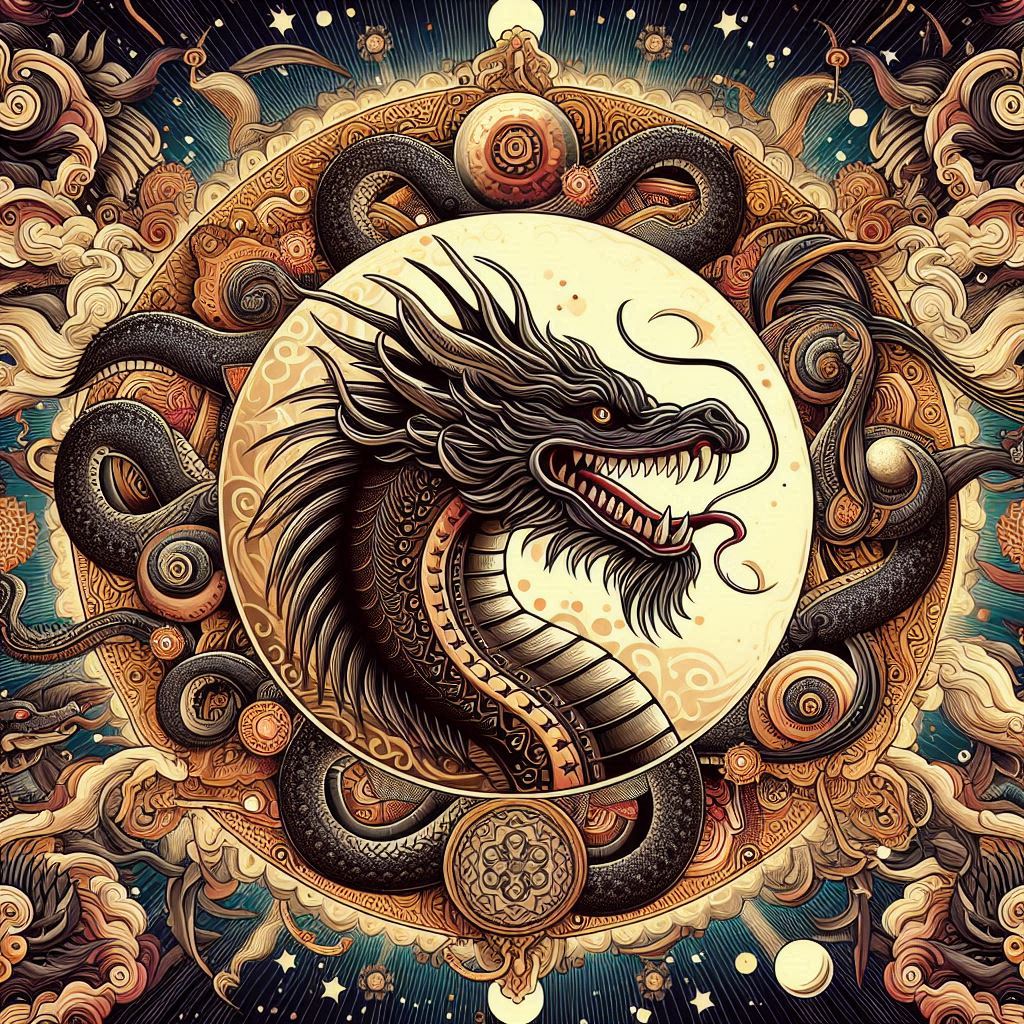

We often hear the word ‘Nakshatra’ from astrologers and priests. So, let’s delve into what it means, its importance and its role in our lives. Nakshatras are constellations and are often referred to as the lunar mansions in astrology where the Moon is located at the time of a person’s birth. Together, Nakshatras can be called a cosmic arrangement of stars that affects your life in different ways.
Nakshatra in Vedic Astrology signifies the 27 constellations that the ancient sages divided the zodiac into. Each one is believed to be the daughter of Prajapati Daksh. The Moon is believed to be the husband of all the 27 daughters and spends a day in each Nakshatra. These Nakshatras are further grouped into four main categories, called Padas, with each pada representing a particular element (fire, earth, air, or water). The placement of the Moon in a particular Nakshatra at the time of a person’s birth is crucial to study its influence on the life of that person.
In Vedic astrology, Nakshatra compatibility is the assessment of the compatibility between two individuals. It is widely used in the context of marriage or partnerships. The compatibility is deduced by various factors, including the Nakshatras occupied by the Moon in each person's birth chart, as well as the ruling lords of those Nakshatras. Here is a list of Nakshatra compatibility and their ruling lords (one among the nine planets in astrology for each):
|
NAKSHATRA |
COMPATIBILITY |
|
Ashwini (ruled Ketu) |
Compatible with Bharani and Krittika |
|
Bharani (ruled by Venus) |
Compatible with Ashwini, Rohini, and Mrigashirsha |
|
Krittika (ruled by Sun) |
Compatible with Ashwini, Rohini, Mrigashirsha, and Punarvasu |
|
Rohini (ruled by Moon) |
Compatible with Bharani, Krittika, Mrigashirsha, Ardra, and Pushya |
|
Mrigashirsha (ruled by Mars) |
Compatible with Bharani, Krittika, Rohini, Punarvasu, and Ardra |
|
Ardra (ruled by Rahu) |
Compatible with Rohini, Mrigashirsha, Punarvasu, Pushya, and Ashlesha |
|
Punarvasu (ruled by Jupiter) |
Compatible with Krittika, Mrigashirsha, Ardra, Pushya, and Ashlesha |
|
Pushya (ruled by Saturn) |
Compatible with Rohini, Ardra, Punarvasu, Ashlesha, and Magha |
|
Ashlesha (ruled by Mercury) |
Compatible with Ardra, Punarvasu, Pushya, Magha, and Purva Phalguni |
|
Magha (ruled by Ketu) |
Compatible with Pushya, Ashlesha, Purva Phalguni, Uttara Phalguni, and Hasta |
|
Purva Phalguni (ruled by Venus) |
Compatible with Ashlesha, Magha, Uttara Phalguni, Hasta, and Chitra |
|
Uttara Phalguni (ruled by Sun) |
Compatible with Magha, Purva Phalguni, Hasta, Chitra, and Swati |
|
Hasta (ruled by Sun) |
Compatible with Magha, Purva Phalguni, Uttara Phalguni, Chitra, and Swati |
|
Chitra (ruled by Mars) |
Compatible with Purva Phalguni, Uttara Phalguni, Hasta, Swati, and Vishakha |
|
Swati (ruled by Rahu) |
Compatible with Uttara Phalguni, Hasta, Chitra, Vishakha, and Anuradha |
|
Vishakha (ruled by Jupiter) |
Compatible with Chitra, Swati, Anuradha, Jyeshtha, and Mula |
|
Anuradha (ruled by Saturn) |
Compatible with Swati, Vishakha, Jyeshtha, Mula, and Purva Ashadha |
|
Jyeshtha (ruled by Mercury |
Compatible with Vishakha, Anuradha, Mula, Purva Ashadha, and Uttara Ashadha |
|
Mula (ruled by Ketu) |
Compatible with Vishakha, Anuradha, Jyeshtha, Purva Ashadha, and Uttara Ashadha |
|
Uttara Asadha (ruled by Sun) |
Compatible with Jyeshtha, Mula, Purva Ashadha, Shravana, and Dhanishta |
|
Purva Asadha (ruled by Venus) |
Compatible with Anuradha, Jyeshtha, Mula, Uttara Ashadha, and Shravana |
|
Shravana (ruled by Moon) |
Compatible with Purva Ashadha, Uttara Ashadha, Dhanishta, Shatabhisha, and Purva Bhadrapada |
|
Dhanishta (ruled by Mars) |
Compatible with Uttara Ashadha, Shravana, Shatabhisha, Purva Bhadrapada, and Uttara Bhadrapada |
|
Shatabhisha (ruled by Rahu) |
Compatible with Shravana, Dhanishta, Purva Bhadrapada, Uttara Bhadrapada, and Revati |
|
Purva Bhadrapada (ruled by Jupiter) |
Compatible with Shravana, Dhanishta, Shatabhisha, Uttara Bhadrapada, and Revati |
|
Uttara Bhadrapada (ruled by Saturn) |
Compatible with Dhanishta, Shatabhisha, Purva Bhadrapada, Revati, and Ashwini |
|
Revati (ruled by Mercury) |
Compatible with Shatabhisha, Purva Bhadrapada, Uttara Bhadrapada, Ashwini, and Bharani. |
Nakshatras are constellations studied in detail by astrologers and astronomers and are called lunar mansions which they use in finding the placement of the Moon during the time of birth. These constellations are considered to be the daughters of Daksha. The Moon is said to have conjugal ties with each one and spends approximately one day in each Nakshatra. This placement of the Moon is considered to be crucial for determining various aspects of an individual’s life.
In Vedic Astrology, there are 27 Nakshatras and each one is believed to have its own unique characteristics. These 27 Nakshatras serve as the key indicators of your personality and show how your life is going to be affected under their influence. All 27 Nakshatras serve as lunar mansions which determine the placement of the Moon at the time of birth. Below you can find a comprehensive list of all the Nakshatras with their ruling deity and symbols.
Nakshatra serves as an integral part of the interpretation and analysis of a person’s life in Vedic Astrology. Each Nakshatra is represented with a specific symbol and has a ruling deity. These deities are believed to have traditional associations with the particular Nakshatra and have a mythology that elaborates on their relation.
|
Nakshatra |
Symbol |
Ruling Deity |
|
Ashwini |
Horse's Head |
Ashwini Kumaras |
|
Bharani |
Yoni (Female Organ) |
Yama |
|
Krittika |
Knife or Flame |
Agni |
|
Rohini |
Chariot |
Brahma or Prajapati |
|
Mrigashirsha |
Deer's Head |
Soma or Chandra |
|
Ardra |
Tear Drop |
Rudra or Shiva |
|
Punarvasu |
Bow and Quiver |
Aditi |
|
Pushya |
Cow's Udder |
Brihaspati or Jupiter |
|
Ashlesha |
Serpent |
Naga or Sarpa |
|
Magha |
Royal Throne |
Pitris or Ancestors |
|
Purva Phalguni |
Front Legs of Bed |
Bhaga or Shukra |
|
Uttara Phalguni |
Back Legs of Bed |
Aryaman or Sun |
|
Hasta |
Hand |
Savitr or Surya |
|
Chitra |
Pearl or Bright Jewel |
Vishvakarma or Tvastar |
|
Swati |
Coral |
Vayu or Wind |
|
Vishakha |
Triumphal Arch |
Indra or Agni |
|
Anuradha |
Lotus |
Mitra or Sun |
|
Jyeshtha |
Umbrella or Earring |
Indra or Shiva |
|
Mula |
Roots |
Nirriti or Alakshmi |
|
Purva Ashadha |
Elephant's Tusk |
Apah or Varuna |
|
Uttara Ashadha |
Elephant's Tusk |
Vishvadevas |
|
Shravana |
Ear |
Vishnu or Shiva |
|
Dhanishta |
Drum or Flute |
Vasus or Eight Attendants of Indra |
|
Shatabhisha |
Hundred Physicians |
Varuna or Shatabhishak |
|
Purva Bhadrapada |
Front Legs of Funeral Cot |
Aja Ekapat or Rudra |
|
Uttara Bhadrapada |
Back Legs of Funeral Cot |
Ahirbudhnya or Serpent of the Deep |
|
Revati |
Fish |
Pushan or Mercury |
In Vedic Astrology, Nakshatra interpretation is done in accordance with the lord of that particular Nakshatra, its ruling deity and its specific characteristics. It helps in producing insights about the health of a person, career choices, relationships, decisions, life patterns, goals and overall well-being. Vedic Astrology associates each Nakshatra with a ruling deity. The lord or the ruling deity imparts specific qualities and energies to the associated lunar mansion. The ruling deity, along with other factors such as the Nakshatra's symbol, ruling planet and mythology related to it, is considered in the interpretation of a person's Nakshatra.
Each Nakshatra has its unique features and characteristics with which they are closely associated. The Nakshatras have the following key features specific to them:
Symbol with which it is denoted and represented.
Ruling deity having a traditional association with it.
Lord governing it. These lords can be any among the nine planets in astrology.
The above-mentioned three define the key features and characteristics of the Nakshatra and how it influences personality traits and the life of an individual. All these are crucial in determining the attributes of a person and are referred to for comprehensive interpretations and analysis in astrology.
To find the right Nakshatra that corresponds to your date of birth you should consult a proficient and experienced astrologer. Nakshatra calculation involves certain charts, tools and tables that expert astrologers are well-versed to use. It starts with determining the exact date of birth according to the Indian lunar calendar. For this, your date of birth according to the Gregorian calendar is converted to the corresponding lunar calendar date. Having this done, the astrologer proceeds with identifying the Nakshatra that had the placement of the Moon in it at the time of birth. Nakshatra Astrology Chart describes the Nakshatra with its key features elaborately. However, it is important to note that the most relevant Nakshatra prediction depends on how precisely the determination of the date of birth is done.
Nakshatras and zodiac signs are two completely different systems in Vedic astrology to interpret and delve into various aspects of an individual's life. Following are some basic differences between zodiac signs and Nakshatras:
Conceptual Difference: Nakshatras refer to lunar mansions or constellations, while zodiac signs are defined as the divisions of the ecliptic based on the Sun's apparent path throughout the year.
Number and Division: There are 27 Nakshatras in Vedic astrology and each occupies a span of 13 degrees and 20 minutes. Whereas, the zodiac is divided into 12 equal parts, and each corresponds to 30 degrees. It is important to note that each zodiac sign spans a specific range of dates.
Ruling Body: Nakshatras are mainly influenced by the Moon's placement at the time of birth, whereas zodiac signs are associated with the position of the Sun during that time. The Moon's Nakshatra is considered significant in Vedic astrology for analyzing and interpreting emotional traits and psychological patterns, whereas the Sun's zodiac sign indicates one's core identity and ego expression.
Subdivisions: Nakshatras are divided further into smaller units called "padas" or quarters, each representing a distinct quality. These subdivisions provide insights into an individual's traits and life experiences. In contrast, Zodiac signs, do not have such subdivisions.
Symbolism and Attributes: Nakshatras have their unique symbols, ruling deities, planetary influences, and associated mythological stories with them. They represent specific qualities and energies that influence different aspects of life. Zodiac signs are represented with symbols of various animals, elements, and archetypal characteristics that are indicative of broad personality traits and tendencies of an individual.
Application: Nakshatras are widely used in Vedic astrology for predicting events, analyzing compatibility, determining favourable times for various activities, and providing insights into an individual's life. Whereas zodiac signs are widely used in Western astrology for understanding personality traits, compatibility, and forecasting.
However, it can be said that considering both offers a more comprehensive approach to analysis and interpretations in astrology.
The astrologers study in detail the Nakshatra placement of the Moon which helps them in getting deeper insights into an individual's life purpose, career choices, relationships, health, and overall well-being. Nakshatra-based astrology offers a comprehensive framework to understand the intricate interplay of celestial energies and their influence on human lives.
It's important to note that Nakshatras are a single aspect of Vedic astrology, and a complete birth chart analysis includes studying other planetary positions and aspects. The Nakshatra, along with other astrological factors, provides a holistic understanding of an individual's life patterns and potentials, helping them make better decisions and carefully navigate their life path.

Ganga Dussehra: A Celebration of Goddess Ganga's Descent ..

Get Kitchen According to Vastu Shastra | 5 Kitchen Vastu Tips | Super Astrologer ..

Understanding 12 Houses In Astrology: A Comprehensive Guide to Interpreting Your Chart ..

Phalguna Amavasya 2024 : Vrat Significance, Date and Time ..

choose best business name as per Numerology ..

Mars transit in Aries on 1 June, 2024 ..

Holi Festival 2024: Date, Time, Significance and Holika Dahan ..

Know the Astrological Benefits of Offering Water to Sun | Super Astrologer ..

5 Best Zodiac Sign whose Love Marriage Became Successful ..

Exploring the Mystical Power of Rahu and Ketu in Vedic Astrology ..